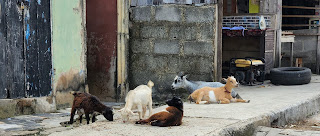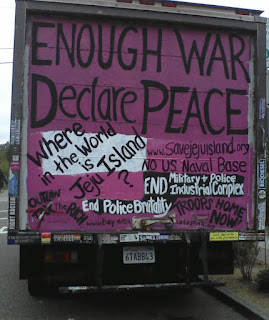The voices of womyn are finafuckinly becoming 'stronger'...i.e. more womyn are refusing to be silenced and are speaking up.
One of the 'successes' of the fuckin dominant trans agenda has been to ensure that a mere dialogue about their impact on womyn has been not only silenced but actually punished - by recent laws passed, by gaslighting, by firing people standing up for womyn's rights, etc.
So I was very very very thrilled that this womon Malkia, whose work for racial justice I deeply respect, was willing to dialogue with me publically on facebook this week!
Here is the post photo that the author couldn't understand how this makes no sense to those who've swallowed the trans agenda:
Here is our dialogue:
Xan:
Makes no sense to those who don't understand the power of misogyny & hatred of homosexuals
Malkia:
Xan I understand misogyny & homophobia. I understand patriarchy and the distortion of identity into a very narrow thing that serves no one. I understand sex and gender are not the same. I understand that feminists have been fighting for centuries to expand our understanding of what a woman is for some to now become narrow & reactionary about what a woman is. I understand that I was assigned female at birth, and consider myself transmasculine, and a feminist, and I’ve never tried to pass as a man. I know that I appreciate expansive politics, but trans-exclusive politics align with the right wing, and that I will never do. Hope no real feminist would either.
Xan:
Malkia i understand & align with all you say ... up until you use the trans language of "assigned female at birth". I understand biology determines female or male at birth. I agree gender stereotypes are assigned moments after birth beginning with the pink - or blue - blanket and the assigned gender stereotypes blossom from there. I appreciate, value, and protect female-centered everything, regardless of who agrees, disagrees, aligns or disparages centering females & will do so as long as patriarchy exists
Xan:
Could it be (yes it is) the right wing is allying with us on this one issue? And absolutely NOT for the same reasons?
I don't recall using "feminine" - yet another society false designation to limit & control womyn. I thght I was clear about the bull shit "assigned at birth". I thght I said biology determines sex at birth. Then society steps in to assign gender stereotypes, roles, characteristics, limits or excessive power to sex. I am proud of men who have the courage to step outside their societal gender stereotypes, etc, and who know they are men who smash male gender stereotypes & do not try to force womyn to pretend they are womyn, I align with them over eliminating bigotry not over invading womyn's same sex spaces, relationships, events, teams, etc
Malkia:
Xan trans women are women and they aren’t invading anything
Xan
I understand that is what you believe. I know that sex is immutable, gender is a society created construct.
Men - & womyn - can use artificial drugs & disfiguring surgery to alter their appearance to become more in line with society's gender stereotypes but they will always simply be men on drugs who used modern technology to surgically alter their bodies. Every single cell will still be xy, so sadly for them.
How much time & energy & love have we spent attempting to learn how to truly love & value our bodies? To now succumb to the powerful pressure of patriarchy to hate our bodies so intensely we support the life-long dependency on pharmaceutical industry as well as the knife that will never be able to emulate Mother Nature.
Nothing that men do to their bodies or say about their bodies will ever make them womyn, as much as they've 'longed' at best for this over the eons, from Adam pretending he can birth from a rib, Zeus from his head, etc etc etc.
The trans agenda has invaded our same-sex spaces, laws, even prisons and sports.
Malkia:
Xan you speak of men and women, I speak of male and female. Men can become women, women can become men, and some people are born with the kind of genetic make up that makes them neither male nor female. More importantly, your personal distaste for surgeries or hormone treatments should not influence people’s rights or access. You don’t like it? Don’t do it, but don’t judge and discriminate against those who do. You have no right to impose your view on the bodies of other people. No one is forcing you to get surgery, to call yourself something you don’t want. You can use whatever language you want to describe yourself, but you may not force your definitions of me on me.
Xan:
Malkia u really want to police my views? You disagree with my views, I welcome dialogue. You don't like my views, don't engage. But you or anyone will never ever silence my views. I influence people every second of every day. My influence is mountains above trans gender ideology. Where's my power to force anything on anyone? Project much? All these 'new' misogynist terms being institutionalized - did I or any feminist create those? Did we change sex to 'gender', woman to 'cis woman' etc etc etc.
Malkia:
Xan okay. The threat of losing civil rights and life is different than being mocked or excluded from the Left. But I see that you do not understand nor take any responsibility for the impact of your words and actions on a whole group of people.
Xan
Malkia No, not so different Malkia. Being 5'2" & old surrounded by angry men, getting pushed down after a sign that says "Biology is NOT Bigotry" is ripped to shreds, or being faced by axes & pink guns declaring "Kill Terfs" - when those very men hv decided to fuckin label me & act as if that label gives them the right to kill me, threaten my children, etc? When the mere word "women" is grounds for them to express rage toward me?
Regardless Malkia, I am, have been, & always will be the one who defends men's rights to wear whatever the fuck they want to wear, etc, & I am & have been & always will be the one who risks her life & puts her body between bigots, white supremacists, misogynists fascist & their intended targets. Regardless of your "fear" of me.
Keeping womyn's spaces sacred has nothing to do w/the civil rights of men who 'identify' as women. I am capable of doing both: defending our right to same sex spaces & defending everyone's rights to embrace whatever socially constructed gender stereotypes, roles, etc they want - as long as they are adults - and as long as they know that their sex never changes.
Malkia:
Xan it’s good to know that regardless of your defense of what you consider “same sex spaces” you are able to understand that discrimination against transgender people is wrong. Trans people are being denied passports, birth certificates, prevented from voting, and removed from civil rights enforcement. So, you can equate if you want, but I see a measurable difference. I’ll step away from this conversation now.
Xan:
Malkia thank you for engaging in this conversation - looking forward to more dialogue & increasing understanding.
And just to clarify: trans people are NOT being denied passports, etc., but what is being denied is the ability to lie on their passports etc. by claiming their sex has changed. It has not and never will. The civil rights denied to trans people is the right to dress, etc., any way they decide and not to be discriminated against because they choose to step away from socially constructed gender stereotypes, roles, etc.

































































